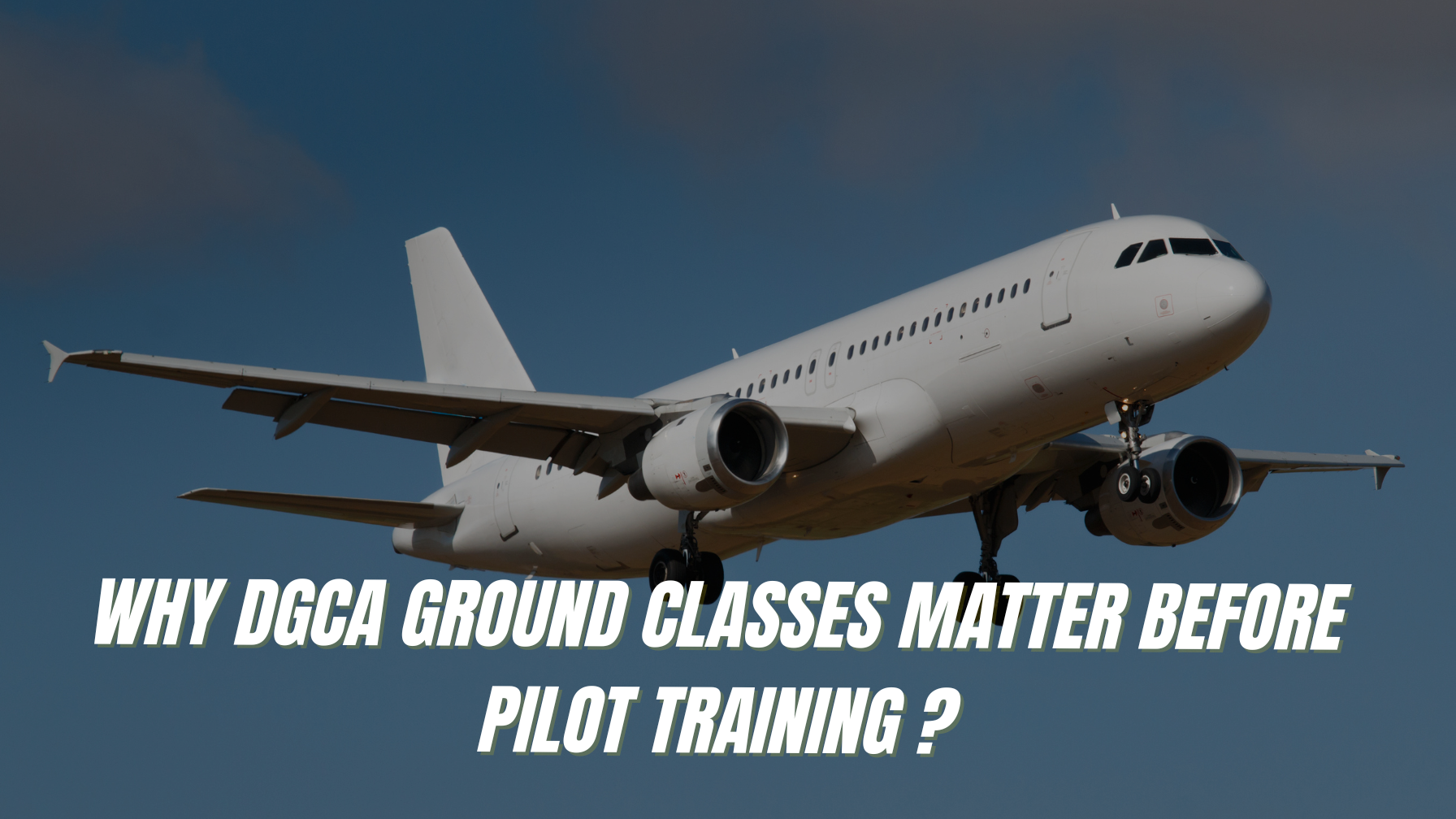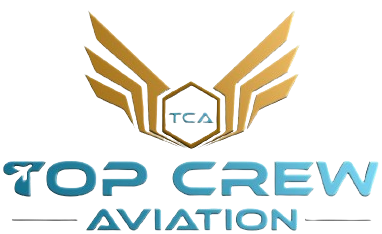
Becoming a pilot is a dream for many. The idea of soaring above the clouds, wearing those iconic pilot wings, and navigating aircraft across the world is exciting. But here’s the truth—before you ever touch the controls of an airplane, there’s a critical step you cannot skip: DGCA ground classes.
Think of ground school as the foundation of your flying career. Just like a building needs a solid base before adding floors, you need strong theoretical knowledge before handling an aircraft. Many aspiring pilots underestimate this stage, rushing directly into flying hours. But skipping or treating ground training lightly can lead to failed exams, wasted money, and delayed careers.
DGCA (Directorate General of Civil Aviation) is India’s aviation regulatory authority. It ensures pilots are trained to international standards, both theoretically and practically. The DGCA exams test your knowledge of aviation rules, meteorology, navigation, aircraft systems, and more. And guess what? Without clearing these exams, you cannot become a licensed pilot—no matter how many hours you log in the air.
This blog will walk you through why DGCA ground classes are essential before flying training, how they shape your skills, and why they save you time, money, and frustration. We’ll keep it simple, clear, and practical.
By the end, you’ll know exactly why investing time in ground school is the smartest move for your aviation journey. Ready to take off into the world of aviation knowledge? Let’s dive in!
What Are DGCA Ground Classes?
Before we understand why they are important, let’s break down what DGCA ground classes actually are.
In simple words: Ground classes = theory training for pilots.
Here’s what they cover:
- Air Regulations – Rules of the air, flight operations, and legal aspects.
- Air Navigation – How to plan routes, read charts, and calculate fuel.
- Meteorology – Understanding weather patterns and their impact on flying.
- Aircraft Technical – Learning about engines, instruments, and systems.
- Radio Telephony (RTR) – Communication procedures with Air Traffic Control (ATC).
These subjects prepare you for DGCA exams, which every aspiring pilot must pass before earning a license.
Why can’t you skip them?
- Without DGCA clearances, you cannot progress in your flying career.
- Airlines and flight schools won’t accept you without these certifications.
- You’ll lack the confidence to handle real-life flying situations.
Think of ground school as the “classroom” part of pilot training. Just as doctors study theory before surgeries, pilots must first understand the science of flight before controlling an aircraft.
Quick Example: Imagine driving a car without knowing traffic rules or engine basics. Dangerous, right? The same applies to flying, except the risks are far higher.
So, when you hear “DGCA ground classes,” remember they’re not just another hurdle—they’re your ticket to safe, confident, and professional flying.
Why DGCA Ground Classes Should Come Before Flying Training
A common mistake students make is jumping straight into flying hours without preparing for DGCA exams. While it seems exciting, it often backfires. Here’s why:
Better Understanding of Flying
When you study ground subjects first, you’ll understand what’s happening in the cockpit. For example, when your instructor explains a navigation log or weather update, it won’t sound like a foreign language.
Faster Progress in Flight School
Pilots who clear their ground papers first usually finish flight training quicker. Why? Because they’re not wasting time juggling theory exams and flying practice simultaneously.
Save Money
Flying hours are expensive. Imagine paying thousands for extra hours just because you didn’t understand technical concepts. With ground knowledge, you avoid unnecessary delays and re-training.
Boosts Confidence
Walking into a cockpit with a strong foundation reduces anxiety. You’ll be more focused on applying knowledge rather than figuring it out on the spot.
Comparison Table
| Approach | Outcome | Cost | Stress Level |
|---|---|---|---|
| Ground classes first | Faster completion | Lower | Low |
| Flying first, then ground | Delays in exams | Higher | High |
Key Takeaway: Doing DGCA ground classes before flying training sets you up for success. It’s like learning the rules of a game before actually playing—it gives you an edge.
How DGCA Ground Classes Prepare You for DGCA Exams
The DGCA exams are not easy. They require dedication, planning, and the right coaching. Ground classes make this preparation structured and efficient.
What Exams Do You Need to Clear?
- CPL (Commercial Pilot License) Exams:
- Air Regulations
- Air Navigation
- Meteorology
- Aircraft Technical General
- RTR Exam: For radio communication with ATC.
How Ground Classes Help:
- Expert Guidance
Trained instructors break down tough concepts into simple lessons. For instance, learning complex navigation formulas becomes easy when taught step by step. - Study Material & Mock Tests
Good ground schools provide updated notes, practice questions, and mock tests that match DGCA patterns. - Doubt Clearing
Classroom discussions and Q&A sessions ensure you’re not stuck on difficult topics. - Discipline & Structure
Studying alone often leads to procrastination. Classes keep you on track with a fixed timetable.
Pro Tip: Students who attend structured DGCA ground classes often clear exams in the first attempt, saving months of stress.
Example: A student who did ground classes alongside flying took 18 months to clear exams. Another who completed ground classes first cleared all exams in 6 months—saving both time and money.
Conclusion: Ground training isn’t just about passing exams—it’s about developing the mindset of a professional pilot.
Practical Skills You Learn in DGCA Ground Classes
It’s easy to think ground school is “just theory.” But the truth is, the knowledge you gain directly impacts your performance in the cockpit.
Key Skills You Develop:
- Navigation Skills
- Reading aeronautical charts
- Calculating headings and fuel requirements
- Weather Interpretation
- Understanding clouds, storms, and winds
- Making safe go/no-go flight decisions
- Aircraft Knowledge
- Recognizing technical faults
- Preventing in-flight emergencies
- Communication Skills
- Using correct phraseology with ATC
- Handling emergency radio calls
Real-Life Application
- When your instructor says, “Check crosswind limitations,” you’ll know exactly what it means.
- If weather suddenly changes mid-flight, you’ll recall your meteorology lessons to decide safely.
Simple Analogy: Ground classes are like learning recipes before cooking. Without recipes, you might still cook—but the results will be messy and unsafe.
By combining theory with practice, you become not just a pilot who can “fly,” but a pilot who can “think, decide, and act” like a professional.
Key Point: DGCA ground classes prepare you for real-world flying challenges, not just exams.
Choosing the Right DGCA Ground School
Not all ground schools are equal. Picking the right one is as important as deciding where to fly.
What to Look For:
- Experienced Instructors
- Do they have aviation backgrounds?
- Have they helped students clear DGCA exams before?
- Updated Study Material
- Is the syllabus aligned with the latest DGCA updates?
- Are there mock tests and practice papers?
- Batch Size & Attention
- Smaller batches often mean better personal guidance.
- Flexibility
- Do they offer online + offline options?
- Can you access recorded lectures for revision?
- Success Rate
- Check how many students have cleared exams through the school.
Tip: Talk to past students before enrolling. Their feedback is more reliable than advertisements.
Red Flags to Avoid:
- Schools promising “guaranteed” exam clearance.
- Outdated material or no structured timetable.
- Lack of post-class support for doubts.
Final Word: Choosing a reliable DGCA ground class institute can make the difference between a smooth aviation journey and endless struggles.
Conclusion
Flying an aircraft may look glamorous, but the backbone of every skilled pilot is strong theoretical knowledge. DGCA ground classes give you the solid foundation needed to pass exams, understand flying concepts, and handle real-world situations confidently.
By completing ground school before starting flight training, you:
- Save time and money.
- Gain deeper cockpit awareness.
- Build confidence to perform under pressure.
- Clear DGCA exams faster.
Think of it this way: Pilots who prioritize ground training are like athletes who master techniques before playing matches. They perform better, progress faster, and build long-lasting careers.
If you’re serious about becoming a pilot, don’t rush into flying hours blindly. Invest in the right ground school, learn the concepts thoroughly, and then step into the cockpit prepared.
What are DGCA ground classes?
DGCA ground classes are theoretical training sessions covering navigation, regulations, meteorology, and technical knowledge required to pass DGCA exams. Take your DGCA ground classes seriously, and you’ll thank yourself later when you’re flying confidently across skies with no setbacks.
If you’re ready to start your aviation journey, research top DGCA ground classes near you today. Enroll, stay disciplined, and take the first real step toward earning your pilot wings. The sky is waiting for you—start from the ground up!
Frequently Asked Questions
What are DGCA ground classes?
DGCA ground classes are theoretical training sessions covering navigation, regulations, meteorology, and technical knowledge required to pass DGCA exams.
Are DGCA ground classes compulsory before flying training?
Yes. You must clear DGCA exams to get a pilot license, making ground training essential before or alongside flying hours.
Can I do DGCA ground classes online?
Yes, many reputed institutes offer online ground classes with live sessions, recorded lectures, and mock tests.
How long do DGCA ground classes take?
Typically, 4–6 months of structured study is enough to prepare for DGCA exams if you stay consistent.
What is the cost of DGCA ground classes in India?
The cost varies by institute but usually ranges between ₹1.5 to ₹3 lakhs depending on facilities and instructors.
What subjects are taught in DGCA ground classes?
Main subjects include Air Regulations, Navigation, Meteorology, Aircraft Technical General, and Radio Telephony.
Can I start flying training without DGCA exams?
You can start, but it’s not advisable. Without DGCA clearances, you’ll face delays, extra costs, and stress later.
What happens if I fail DGCA exams?
You can reappear, but failing delays your training and increases expenses. Proper ground classes improve your chances of clearing in one attempt.



